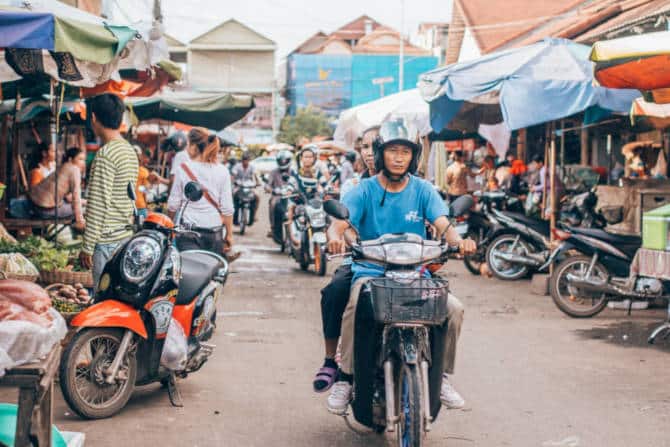
A flood of Chinese gambling money is making residents of Cambodia’s cultural jewel uneasy.
During colonial rule, the French built an enclave with a church, a post office and a breathtaking hotel in the highlands of Bokor Mountain above Kampot. The hotel fell to ruin during the civil war and remained as a haunting monument to history – until this year, when it became home to Le Bokor Palace, a luxury hotel and casino.
In Kampot, Cambodia, casinos are taking advantage of the demand among Chinese gamers for both offline and online gambling, both of which are banned in China. There are currently two casinos on Bokor with more expected to open after an 18,000-hectare resort, now under construction, is completed.
The fact that gambling licences are easy to obtain and regulations are loose contributes to the growth of gambling tourism in Cambodia.
The gaming gold rush is most evident in Sihanoukville, which is two hours away from Kampot. The heart of Chinese investment in Cambodia, the city thrives in manufacturing, tourist and gambling industries. Sihanoukville is no longer the fishing village and backpacker haunt it once was. Instead, you can now see nothing on its streets but Chinese supermarkets, flashy condos and casinos.
34-year-old Som Annie and her French boyfriend Damien Pradayrol, have just left Sihanoukville for Kampot. Thanks to the city’s rapidly increasing living costs, including rocketing property prices caused by the insatiable housing demand from Chinese expats, the couple had no choice but to leave.
Before the rent rocketed, they were sharing a small room for $75 a month for a couple of years. The couple were forced to move four times in one year. The rent for their last flat in Sihanoukville was $250 a month.
“Before I liked Sihanoukville, but now I don’t like it anymore,” said Annie.
“My mother and father rent a home there too. Once the contract finishes, they will be kicked out and the home will be rented out to Chinese,”
Sihanoukville has become a symbol of China’s modern imperial ambitions. It also reflects the fear of Cambodian people that the country is being parcelled up and sold off, province by province.
“Anything Cambodia needs now we just get it from China, and so they just take what they want from us,” a tuk tuk driver in Phnom Penh said.
Observing the change in Sihanoukville, many residents in Kampot view the economic development on their doorstep with cynicism. Ros Phirun, deputy director of the finance ministry, claimed that the government was not planning to allow casinos in Kampot outside of Bokor in order to protect the town’s “eco-tourism”.
Nevertheless, cruises will be plying the southern coast of Cambodia and stop at Sihanoukville following the opening of a new port next year. Chinese tourists and gamers are expected to be brought to Kampot.
Regarding the new Le Bokor Palace, Chem Makara, a 26-year-old worker on a pepper plantation, commented: “People prefer to see the old one. I hear all foreigners ask where it has gone. It was special. It had history.”